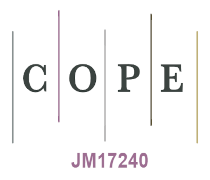Nieśmiałość a kompetencje temporalne młodzieży
DOI:
https://doi.org/10.18778/1427-969X.15.04Słowa kluczowe:
shyness, temporal competenceAbstrakt
The study refers to a problem of temporal competence in shy youth. The research question was: Whether and what differences in the level and the structure of temporal competences are in the group of young people with various level of shyness? The group of 286 (F–178, M–108) aged 15–18 years was tested. The Shyness Questionnaire by W. R. Crozier and The Temporal Competences Questionnaire by Z. Uchnast and K. Tucholska were applied. The analysis of results obtained allows to state that the shy youth has significantly lower level of temporal competence in general. They suffer from the lack of acceptance of their past and present situation, and deficit in prospective approach. The results of conducted research may direct the therapeutic work with shy people on the issues of their openness to various dimensions of psychological time. It should be noticed that the essence of shyness is not only in the lack of social or communicative competences but also it is connected with the lack of basic competences in psychological time experience.
Bibliografia
Beer J. (2002), Implicite Self-Theories of Shyness, „Journal of Personality and Social Psychology”, 83(4), 1009–1024.
Google Scholar
DOI: https://doi.org/10.1037/0022-3514.83.4.1009
Borecka-Biernat D. (1996), Lęk a zachowanie nieśmiałe nastolatków w sytuacji ekspozycji społecznej, „Psychologia Wychowawcza”, 5, 418–426.
Google Scholar
Borecka-Biernat D. (1998), Poziom samooceny a zachowanie nieśmiałe młodzieży w sytuacji ekspozycji społecznej, „Zdrowie Psychiczne”, 1–2, 66–83.
Google Scholar
Borecka-Biernat D. (2001), Zachowanie nieśmiałe młodzieży, Oficyna Wydawnicza „Impuls”, Kraków.
Google Scholar
Carducci B. (2008), Nieśmiałość. Nowe odważne podejście, Wydawnictwo Znak, Kraków.
Google Scholar
Cheek J., Buss A. (1981), Shyness and Sociability, „Journal of Personality and Social Psychology”, 41 (2), 330–339.
Google Scholar
DOI: https://doi.org/10.1037/0022-3514.41.2.330
Crozier W. R. (1995), Shyness and Self-esteem in Middle Childhood, „British Journal of Educational Psychology”, 65, 85–95.
Google Scholar
DOI: https://doi.org/10.1111/j.2044-8279.1995.tb01133.x
Crozier W. R. (2000), Shyness and Relationships: Continuity and Change, [w:] Shyness. Development, Consolidation and Change, ed. W. R. Crozier, Routledge, Londyn, 1–21.
Google Scholar
Crozier W. R., Birdsey N. (2002), Shyness, Sensation Seeking and Birth-order Position, „Personality and Individual Differences”, 35, 127–134.
Google Scholar
DOI: https://doi.org/10.1016/S0191-8869(02)00146-0
Dzwonkowska I. (2002), Relation of Shyness and Sociability to Self-Esteem and Loneliness, „Polish Psychological Bulletin”, 33, 39–42.
Google Scholar
Dzwonkowska I. (2003), Nieśmiałość i jej korelaty, „Przegląd Psychologiczny”, 46(3), 307–322.
Google Scholar
Harwas-Napierała B. (1979), Nieśmiałość dziecka, Wydawnictwo UAM, Poznań.
Google Scholar
Harwas-Napierała B. (1982), Nieśmiałość a funkcjonowanie młodzieży szkolnej w różnym wieku, „Problemy Wychowawcze a Zdrowie Psychiczne”, 3–4, 3–4.
Google Scholar
Harwas-Napierała B. (1995), Nieśmiałość dorosłych: geneza – diagnostyka – terapia, Wyd. Fundacji Humaniora, Poznań.
Google Scholar
Januszewsk a E. (2000), Nieśmiałość a poziom lęku u dzieci w młodszym wieku szkolnym, „Przegląd Psychologiczny”, 43(4), 481–496.
Google Scholar
Koydemir S., Demir A. (2008), Shyness and Cognitions: An Examination of Turkish University Students, „Journal of Psychology”, 142(6), 633–644.
Google Scholar
DOI: https://doi.org/10.3200/JRLP.142.6.633-644
Kulik A., Kulik A. (2003), Obraz siebie nieśmiałych nastolatków na tle przemian w Polsce, [w:] Studia z psychologii w KUL, red. P. Francuz, M. Grygielski, W. Otrębski, 11, Wyd. KUL, Lublin, 263–277.
Google Scholar
Kulik A., Szewczyk L. (2003), Temperamentalne aspekty nieśmiałości nastolatków, „Roczniki Psychologiczne”, 6, 59–75.
Google Scholar
Monroe A., Gorsky J., Collins T., Berger P. (1989), Shyness and Sociability Reexamined: A Multicomponent Analysis, „Journal of Personality and Social Psychology”, 57(5), 904–915.
Google Scholar
DOI: https://doi.org/10.1037/0022-3514.57.5.904
Mounts N. S., Valentiner D. P., Anderson K. L., Boswell M. K. (2006), Shyness, Sociability, and Parental Support for the College Transition: Relation to Adolescents’ Adjustment, „Journal of Youth and Adolescence”, 35(1), 1–10.
Google Scholar
DOI: https://doi.org/10.1007/s10964-005-9002-9
Muris P., Rassin E., Franken I., Leemreis W. (2007), Psychometric Properties of the Behavioral Inhibition Scale in Young Adults, „Journal of Individual Differences”, 28(4), 219–226.
Google Scholar
DOI: https://doi.org/10.1027/1614-0001.28.4.219
Paulsen E., Bru E., Murberg T. A. (2006), Passive Students in Junior High School: The Associations with Shyness, Perceived Competence and Social Support, „Social Psychology of Education”, 9, 67–81.
Google Scholar
DOI: https://doi.org/10.1007/s11218-005-1365-y
Pilkonis P. (1977a), Shyness, Public and Private, and Its Relationship to Other Measures of Social Behavior, „Journal of Personality”, 45, 585–595.
Google Scholar
DOI: https://doi.org/10.1111/j.1467-6494.1977.tb00173.x
Pilkonis P. (1977b), The Behavioral Consequences of Shyness, „Journal of Personality”, 45, 596–611.
Google Scholar
Pilkonis P. (1977b), The Behavioral Consequences of Shyness, „Journal of Personality”, 45, 596–611.
Google Scholar
DOI: https://doi.org/10.1111/j.1467-6494.1977.tb00174.x
Skorny Z. (1965), Dziecko jest nieśmiałe, „Problemy Opiekuńczo-Wychowawcze”, 10, 6.
Google Scholar
Tucholska K. (2007b), Kompetencje temporalne jako wyznacznik dobrego funkcjonowania. Towarzystwo Naukowe KUL, Lublin.
Google Scholar
Tucholska S. (2007a), Kwestionariusz N autorstwa W. Ray Croziera do badania młodzieży, Katedra Psychologii Ogólnej KUL [maszynopis].
Google Scholar
Tyszkowa M. (1978), Osobowościowe podstawy syndromu nieśmiałości, „Psychologia Wychowawcza”, 3, 230–242.
Google Scholar
Tyszkowa M. (1993), Nieśmiałość i zahamowanie, [w:] Encyklopedia pedagogiczna, red. W. Pomykało, Fundacja Innowacja, Warszawa, 457–459.
Google Scholar
Uchnast Z., Tucholska K. (2003), Kompetencje temporalne – metoda pomiaru, „Roczniki Psychologiczne”, 6, 131–150.
Google Scholar
Umecka M., Tucholska S. (2009), Zachowania zaradcze młodzieży nieśmiałej, „Przegląd Psychologiczny”, 52(3), 263–276.
Google Scholar
Zimbard o P. G. (2002), Nieśmiałość. Co to jest i jak sobie z nią radzić?, PWN, Warszawa.
Google Scholar
Zinczuk J. (2003), Nieśmiałość dziecka jako czynnik zagrażający rozwojowi kompetencji emocjonalnej, [w:] Ukryte piętno. Zagrożenia rozwoju w okresie dzieciństwa, red. A. Brzezińska, S. Jabłoński, M. Marchew, Wydawnictwo Fundacji Humaniora, Poznań, 133–147.
Google Scholar
Pobrania
Opublikowane
Jak cytować
Numer
Dział
Licencja

Utwór dostępny jest na licencji Creative Commons Uznanie autorstwa – Użycie niekomercyjne – Bez utworów zależnych 4.0 Międzynarodowe.








